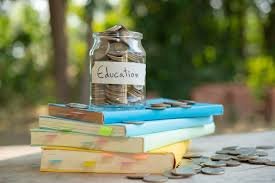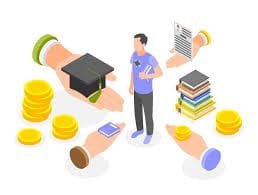Master Your Money: The Surprising Influence of Financial Education on Your Wallet
Introduction
In today’s fast-paced world, mastering your money is more crucial than ever.
However, achieving financial stability and success isn’t just about earning a high income—it’s also about understanding how to manage and grow your finances wisely.
This is where financial education plays a pivotal role. Let’s delve into how gaining financial literacy can significantly impact your wallet.
[ez-toc]
Understanding Financial Literacy
Financial literacy refers to the knowledge and understanding of various financial concepts and tools.
It encompasses the ability to manage personal finances effectively, make informed financial decisions, and navigate the complexities of the financial world.
Being financially literate empowers individuals to take control of their financial futures and build wealth over time.
The Impact of Financial Education on Personal Finance

Budgeting Skills
One of the fundamental aspects of financial education is learning how to create and stick to a budget.
By understanding your income and expenses, you can allocate your resources more efficiently, avoid overspending, and save for future goals.
Debt Management
Financial education equips individuals with the knowledge and strategies to manage and reduce debt effectively.
Whether it’s credit card debt, student loans, or mortgages, understanding how to prioritize payments and minimize interest can lead to significant savings in the long run.
Saving and Investing
Another crucial aspect of financial education is learning the importance of saving and investing.
By setting aside money for emergencies and future goals, individuals can build a financial safety net and work towards achieving their dreams.
Additionally, understanding different investment options and strategies can help grow wealth and secure a comfortable retirement.
Understanding Credit
Financial education also entails understanding the role of credit in personal finance.
From credit scores to borrowing responsibly, being knowledgeable about credit can help individuals access better loan terms, lower interest rates, and improve overall financial health.
Benefits of Financial Education

Empowerment and Confidence
One of the primary benefits of financial education is empowerment. When individuals have the knowledge and skills to make sound financial decisions, they feel more confident about their financial future.
This empowerment can lead to greater peace of mind and a sense of control over one’s financial destiny.
Improved Financial Decision-Making
Financial education provides individuals with the tools and insights needed to make informed financial decisions.
Whether it’s buying a home, starting a business, or planning for retirement, being financially literate enables individuals to weigh their options carefully and choose the best course of action.
Better Management of Financial Goals
By understanding how to budget, save, and invest effectively, individuals can better manage their financial goals.
Whether it’s buying a house, paying for education, or traveling the world, financial education lays the groundwork for achieving these aspirations and living a fulfilling life.
Sources of Financial Education

Formal Education
Many schools and universities offer courses and programs dedicated to financial literacy. These educational initiatives teach students about budgeting, investing, and other essential financial concepts from an early age.
Online Resources
The internet is a treasure trove of financial education resources. From informative websites and blogs to educational videos and podcasts, there’s no shortage of accessible and valuable information available online.
Financial Literacy Programs
Numerous organizations and nonprofits offer financial literacy programs and workshops to help individuals improve their financial knowledge and skills.
These programs often cover topics such as budgeting, debt management, and retirement planning.
Books and Publications
Books and publications written by financial experts are another valuable source of financial education.
Whether it’s personal finance classics or the latest bestsellers, reading about financial concepts and strategies can broaden your knowledge and deepen your understanding of money matters.
Overcoming Barriers to Financial Education

Lack of Access
One of the biggest barriers to financial education is the lack of access to resources and information, particularly in underserved communities.
Addressing this disparity requires a concerted effort to make financial education more accessible and inclusive for all.
Limited Resources
Financial education initiatives often require resources such as time, money, and expertise.
However, not everyone has access to these resources, making it challenging to prioritize financial education in their lives.
Finding creative solutions to overcome these resource constraints is essential for promoting financial literacy.
Overcoming Misconceptions
Misconceptions and myths surrounding personal finance can also hinder financial education efforts.
Whether it’s the belief that investing is only for the wealthy or that budgeting is too restrictive, dispelling these myths is essential for fostering a more informed and financially literate society.
Integrating Financial Education into Daily Life

Setting Financial Goals
One of the first steps in mastering your money is setting clear financial goals.
Whether it’s buying a home, paying off debt, or saving for retirement, having specific and achievable goals can provide direction and motivation for your financial journey.
Creating a Budget
A budget is a roadmap for your finances, outlining your income, expenses, and savings goals.
By creating and following a budget, you can track your spending, identify areas for savings, and make informed financial decisions that align with your priorities.
Educating Oneself Continuously
Financial education is an ongoing process that requires continuous learning and self-improvement.
Whether it’s reading books, attending workshops, or seeking advice from financial professionals, investing in your financial education is one of the best investments you can make for your future.
Seeking Professional Advice
When it comes to complex financial matters, seeking professional advice can be invaluable.
Whether it’s consulting with a financial advisor, accountant, or estate planner, having expert guidance can help you navigate the intricacies of personal finance and make informed decisions that align with your goals.
Conclusion
In conclusion, mastering your money is about more than just balancing your checkbook—it’s about gaining the knowledge and skills to manage your finances effectively, make informed decisions, and achieve your financial goals.
By prioritizing financial education and integrating it into your daily life, you can take control of your financial future and unlock the keys to long-term financial success.

